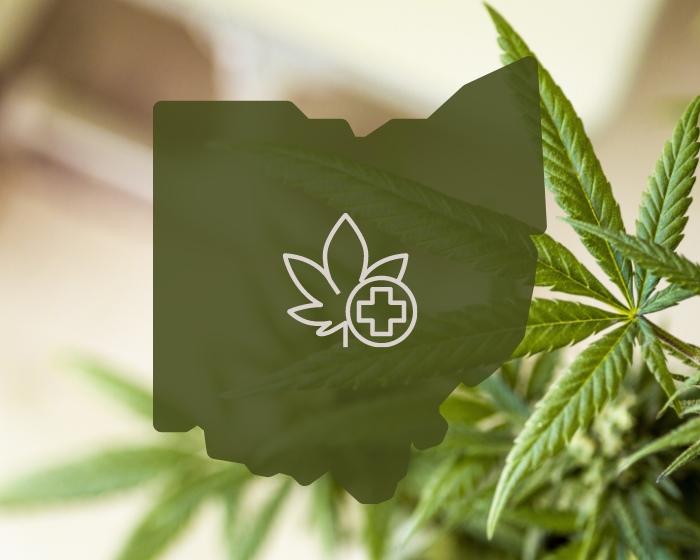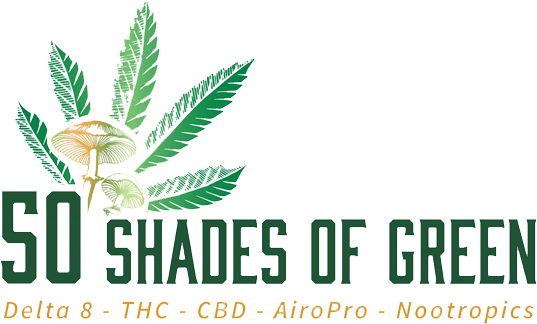Ohio’s medical cannabis program is asking lawmakers to regulate delta-8 THC

Delta-8 Ohio Legislation
The agency overseeing Ohio’s medical cannabis program hopes to expand the state’s definition of THC to include delta-8 and other THC isomers, reports Hemp Grower. This would officially make delta-8 legal in the state for medical use – while greatly restricting its reach. Currently in a regulatory gray zone, delta-8 is sold in gas stations, liquor stores, and head shops.
What’s Delta-8 THC?
A delta-8 molecule is, chemically speaking, a sibling to the most well-known and naturally-abundant tetrahydrocannabinol, delta-9 THC. And like delta-9, it has a psychotropic effect.
How is it legal? When hemp was legalized by the 2018 Farm Bill, lawmakers put a limit on delta-9 THC specifically, and many states used that same language verbatim in their legislation.
This created room in federal and state-level rules for THC isomers like delta-8 and delta-10 to be considered legal, as long as the delta-9 THC levels are below 0.3%. Notably, the federal Drug Enforcement Agency has said that in its current interpretation of statute only delta-9 THC is considered a controlled substance.
At the state level, rules vary widely. Some states have banned delta-8. Some have legalized and regulated it. In others, state administrative agencies including the attorney general’s office, health department or board of pharmacy have issued opinions or attempted to declare that delta-8 illegal. Those do not, at this point, appear to be binding.
Delta-8 THC in Ohio
Ohio has a medical cannabis program but no recreational use, so bringing delta-8 in line with medical use laws would limit sales to licensed dispensaries. (Remember, it’s currently available in gas stations.)
In December 2021, Ohio’s Medical Marijuana Control Program proposed regulatory updates to lawmakers in the General Assembly’s Joint Committee on Agency Rule Review.
The most significant change is that the definition of tetrahydrocannabinol would be expanded to include isomers such as delta-8 THC, delta-10 THC, and any other intoxicating or psychoactive cannabinoid.
Here’s the exact verbiage:
“‘Tetrahydrocannabinol’ or ‘THC’ means all naturally or artificially derived tetrahydrocannabinols, or any structural, optical or geometric isomers, or analogs of tetrahydrocannabinols. This includes, but is not limited to, Delta-1 tetrahydrocannabinol; Delta-6 tetrahydrocannabinol; Delta 3,4 tetrahydrocannabinol; Delta-8-tetrahydrocannabinol; Delta-9 tetrahydrocannabinol; Delta-10 tetrahydrocannabinol; and any other cannabinoid that the Department determines to have an intoxicating or psychoactive effect.”
“This update provides patients with that transparency and allows the Department to better track which THC isomers are being used in medical marijuana products in Ohio.”
– Rule Summary and Fiscal Analysis, via the Register of Ohio
Packaging, labeling, and testing regulations would also be updated to reflect the new definition.
“The Department has an interest in maintaining patient safety over the contents of medical marijuana products, and to ensure that there is transparency in packaging, labeling, and testing of medical marijuana products,” reads a summary of the rule. “This update provides patients with that transparency and allows the Department to better track which THC isomers are being used in medical marijuana products in Ohio.”
According to a report from the state’s Common Sense Initiative, the department talked with patients in the medical cannabis program, who reportedly asked that labels clearly convey which THC isomers are in medical cannabis products. The agency also sought input from the Ohio Medical Cannabis Industry Association and licensed dispensaries while developing the rules.
A public hearing on the rule change was held January 18, but no summary of the hearing has been posted as of this report.






